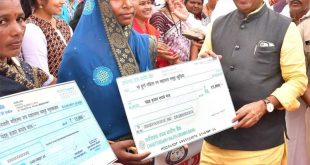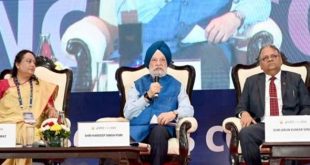
On Monday (April 1), the Supreme Court heard a petition by a mosque committee against worship in the Vyas basement of the Gyanvapi Masjid complex. Mosque side's lawyer Huzaifa Ahmadi said that the lower court had given a week's time to implement the order, but the government implemented it immediately. We have not got relief even from the High Court. The Supreme Court should immediately stop this.
Chief Justice DY Chandrachud issued notice in this matter
Chief Justice DY Chandrachud issued notice in the case and indicated hearing on the next date. However, the lawyer for the mosque side presented his arguments and demanded an immediate ban on the puja. During this, the Chief Justice said that the entry into the basement is from the south and the entry into the mosque is from the north. Both do not affect each other. We direct that for the time being both the pujas should continue at their respective places.
Vyas family's lawyer Shyam Diwan opposed issuing formal notice
Vyas family's lawyer Shyam Diwan opposed issuing a formal notice. The lawyer said that the matter has not yet been completely resolved in the lower courts. There is no need for Supreme Court intervention at this time.
Mosque Committee approached SC against Allahabad High Court's decision
In fact, the Anjuman Masjid Management Committee has challenged in the Supreme Court the decision of the Allahabad High Court, which had upheld the lower court's decision in which Hindus were allowed to worship in the southern basement of the mosque. This committee manages the affairs of the Gyanvapi Mosque in Varanasi. In its order on January 31, the lower court had given permission to Hindus to worship in the basement.
His application was rejected on 26 February
After this the committee approached the High Court, where their petition was rejected on 26 February. The High Court had held that the Uttar Pradesh government's 1993 decision to stop worship in the basement of Vyasji located in the southern basement of Gyanvapi was illegal. The puja was stopped due to illegal action of the state without any written order.
 look news india
look news india


